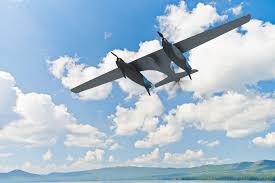Exclusive: Trump to Reinterpret 1987 Missile Treaty to Enable Overseas Drone Sales
President Donald Trump is set to unilaterally reinterpret a decades-old arms control treaty to authorize the sale of advanced U.S. military drones—including “Reaper”-style systems—to foreign nations, according to one U.S. official and several people briefed on the matter.
The revised stance could unlock the sale of more than 100 MQ-9 Reaper drones to Saudi Arabia, which requested the systems earlier this year as part of a potential $142 billion arms deal announced in May. U.S. allies in Europe and the Pacific region have also expressed strong interest.
By reclassifying drones as aircraft rather than missile systems, Washington would bypass restrictions under the Missile Technology Control Regime (MTCR), a 35-nation agreement signed in 1987. This policy shift would expand access to countries such as the UAE and Eastern European states eager to acquire America’s most sophisticated unmanned aerial vehicles (UAVs).
Under the proposed framework, manufacturers like General Atomics, Kratos (KTOS.O), and Anduril would have their large drones categorized as Foreign Military Sales, streamlining approvals from the U.S. State Department, according to a U.S. official who spoke anonymously to Reuters.
This marks the first step in a planned overhaul of the U.S. Foreign Military Sales (FMS) program, the official added.
The State Department declined to comment.
Background: Drone Sales Under MTCR Rules
Currently, MTCR guidelines impose a “strong presumption of denial” on many drone exports unless buyers provide compelling security justifications and agree to comply with international law.
The MTCR was originally designed to curb the spread of long-range missiles capable of carrying weapons of mass destruction (WMDs). Although drones were developed years later, they were brought under the treaty because of their ability to cover long distances and carry payloads.

Rising Global Drone Competition
American defense contractors face fierce competition from China, Israel, and Turkey, all of which operate under less restrictive frameworks.
- China and Israel are not MTCR signatories, giving them an edge in securing lucrative deals in the Middle East.
- Turkey, which joined the treaty in 1997, has found success with its Bayraktar-TB2 drones, used against Russian forces in Ukraine. These lighter, shorter-range UAVs fall under different MTCR standards than heavier Reapers.
Meanwhile, Russia has relied on both domestically built and Iranian drones to target Ukraine.
The U.S., however, has withheld large drone sales to Kyiv due to concerns that advanced technology could be captured by adversaries.
Washington’s Strategy to Regain Market Share
Demand for combat drones and military UAVs is surging worldwide, as both purpose-built and modified consumer drones are increasingly viewed as crucial on modern battlefields.
According to the U.S. official, the policy shift aims to position Washington as the world’s leading drone supplier, countering China and Turkey’s rapid market expansion.
While no date has been set for the announcement, insiders say the administration is preparing to roll out the new guidelines later this year alongside broader changes to the FMS program.
The timing is expected to benefit drone makers developing the next generation of jet-powered UAVs designed to operate as “loyal wingmen” alongside piloted fighter jets—a fast-growing defense market.
Click Here To Learn More About Trump’s World Liberty Token
Human Rights, Security Concerns, and Politics
Even under the new policy, all sales would remain subject to the Foreign Military Sales review process, which examines regional stability, human rights records, and the buyer’s ability to safeguard sensitive systems.
One of the first major sales could go to Saudi Arabia. President Joe Biden had restricted arms sales to Riyadh in 2021 over the country’s actions in Yemen, which led to civilian casualties. But U.S.-Saudi ties have since improved following the October 2023 Hamas attack on Israel, with Washington and Riyadh working more closely on security matters.
The White House is expected to frame the reinterpretation as part of Trump’s broader push to create U.S. jobs, expand the defense industry, and reduce the trade deficit.
However, human rights advocates and arms control groups caution that the move could fuel instability and intensify conflict in volatile regions such as the Middle East and South Asia.
